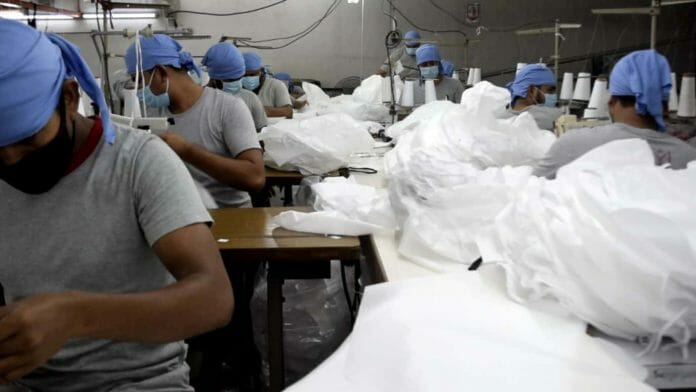Since the World Health Organisation’s (WHO) announcement on global shortage of Personal Protective Equipment (PPEs), Malaysian manufacturers have boosted production to 5 million pieces a month for certain types of key PPEs.
In April when the Covid-19 virus infections were at the peak, the number of key PPEs required was about 3 million pieces. This includes isolation gowns, boot covers, jumpsuits, head covers, face shields and aprons.
Most of these key PPEs are made of non-woven material made from plastics and require secondary processes such as cutting, sewing and lamination or coating, which is a crucial protective step in ensuring the non-woven materials are liquid repellant for certain applications.
The Malaysian Plastics Manufacturers Association (MPMA) said with minimal capacity for both uncoated and coated PPEs, they were able to produce over 5 million pieces in under two months.
“Malaysia’s manufacturing sector has demonstrated that we have the agility to expand our capacity further and adapt in a critical stage and we are proud to be able to prove ourselves and at the same time support the nation in our battle against this pandemic,” said Lim Kok Boon, President of MPMA.
Fibertex Personal Care Sdn Bhd (Fibertex), a MPMA member, has been made the principal supplier of non-woven materials, will be allocating 10 million square metres a month for PPEs.
Another member, San Miguel Yamamura Woven Products Sdn Bhd (San Miguel), will be allocating coating capacity for 3.5 million square metres a month. These capacities are sufficient to produce 5 million pieces of PPEs for MOH as well as other private healthcare institutions in Malaysia.
All non-woven materials, both coated and uncoated, will then be handed to members of Federation of Malaysian Fashion and Textile Association (FMFTA) for cutting and sewing.
These companies have each taken up the challenge and gone through an extensive process to build this production capacity through innovative ways that include repurposing machines, modifying tools and equipment as well as diverting production capacities from their normal businesses.
San Miguel’s core business is lamination and coating of food packaging, insulation material and breathable membrane. It has had its machines repurposed and modified to cater to the non-woven PPEs specification, and diverted some of its existing products to other production lines. The coated non-woven material is crucial for the production of isolation gowns.
Meanwhile, non-woven manufacturer, Fibertex has dedicated some of its machines to making material for PPEs instead of for the hygiene industry such as baby diapers, adult diapers, and feminine sanitary napkins.
FMFTA has identified 30 of its members to carry out the cutting and sewing tasks for this initiative. In order to cater to the non-woven material, the members have each changed to either highly durable or wider cutting blades and trained its workers to handle the materials in the sewing process.
According to FMFTA President, Tan Thian Poh, sewing is largely labour intensive. Hence, they have identified 30 members to ramp up the production.
“Our members will continue to deliver as long as the country is in need of PPE supplies. Both FMFTA and MPMA are committed to making sure there will be no interruption in production or supply,” Tan said.
Tan elaborated that since the industries are now able to meet the country’s needs in the supply of the identified PPEs, the industries are working together to explore the export market.
“We are confident that we should be able to export as we have already received enquiries in this regard,” he said.
Members of MPMA have also started examining the viability of producing the highly requested non-woven material for 3-ply surgical face mask. It is one of the few PPEs that is not locally manufactured as Malaysia lacks the machines to produce the specialised spunbond and meltblown non-woven material. This material is used in the middle layer of the mask to function as a barrier to catch microorganisms shed in liquid droplets and aerosols from the wearer’s mouth and nose.
“We want to ensure that the hospitals in Malaysia will always have access to almost all of the PPEs that they require as they will be locally sourced,” said Lim.
“This pandemic has exposed how fragile relying on outsourced materials can be. From supply-chain disruptions, material shortage, spike in cost of products, to quality-control standards, there is too much at risk. Local capacity will ensure a continuous supply, cost-effective and high-quality PPEs to protect our frontliners and possibly to be exported as well.”









